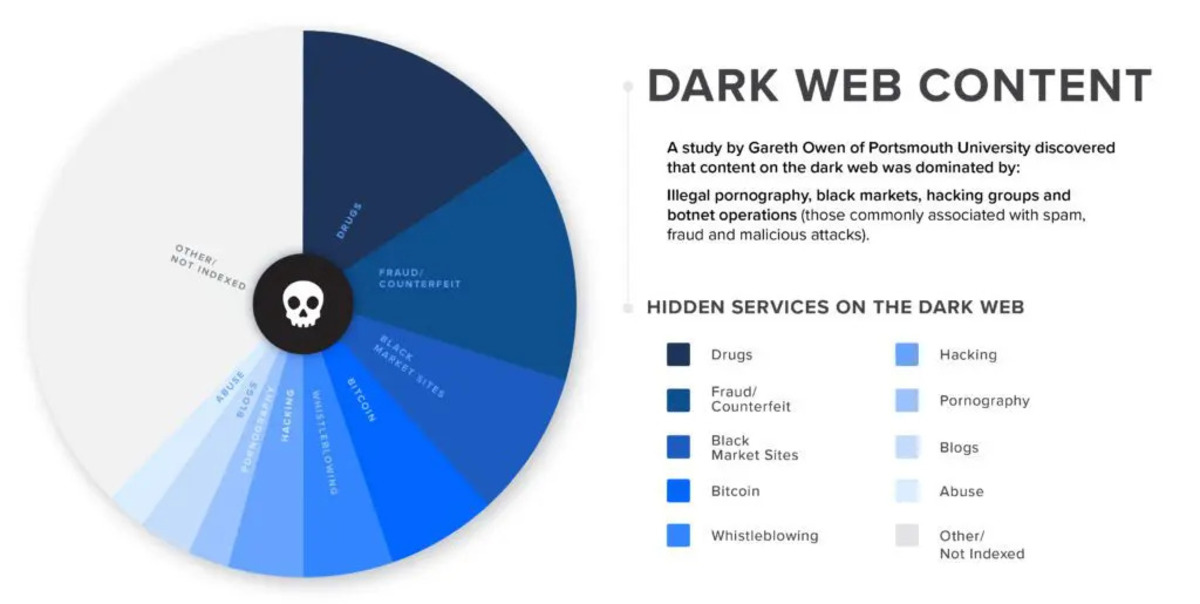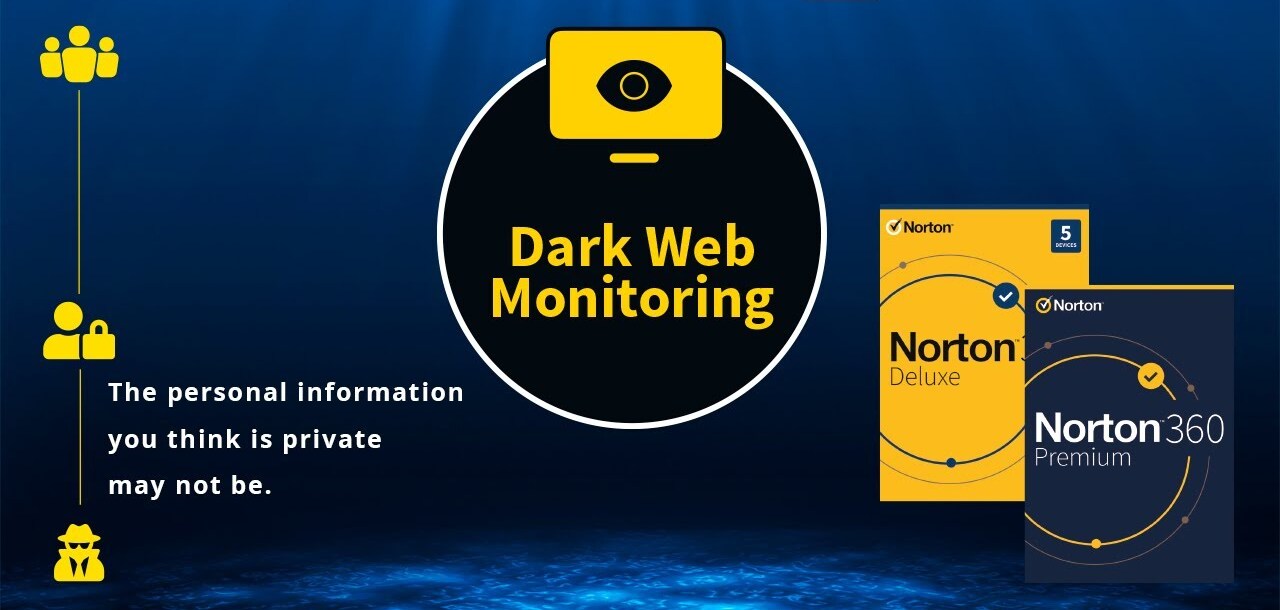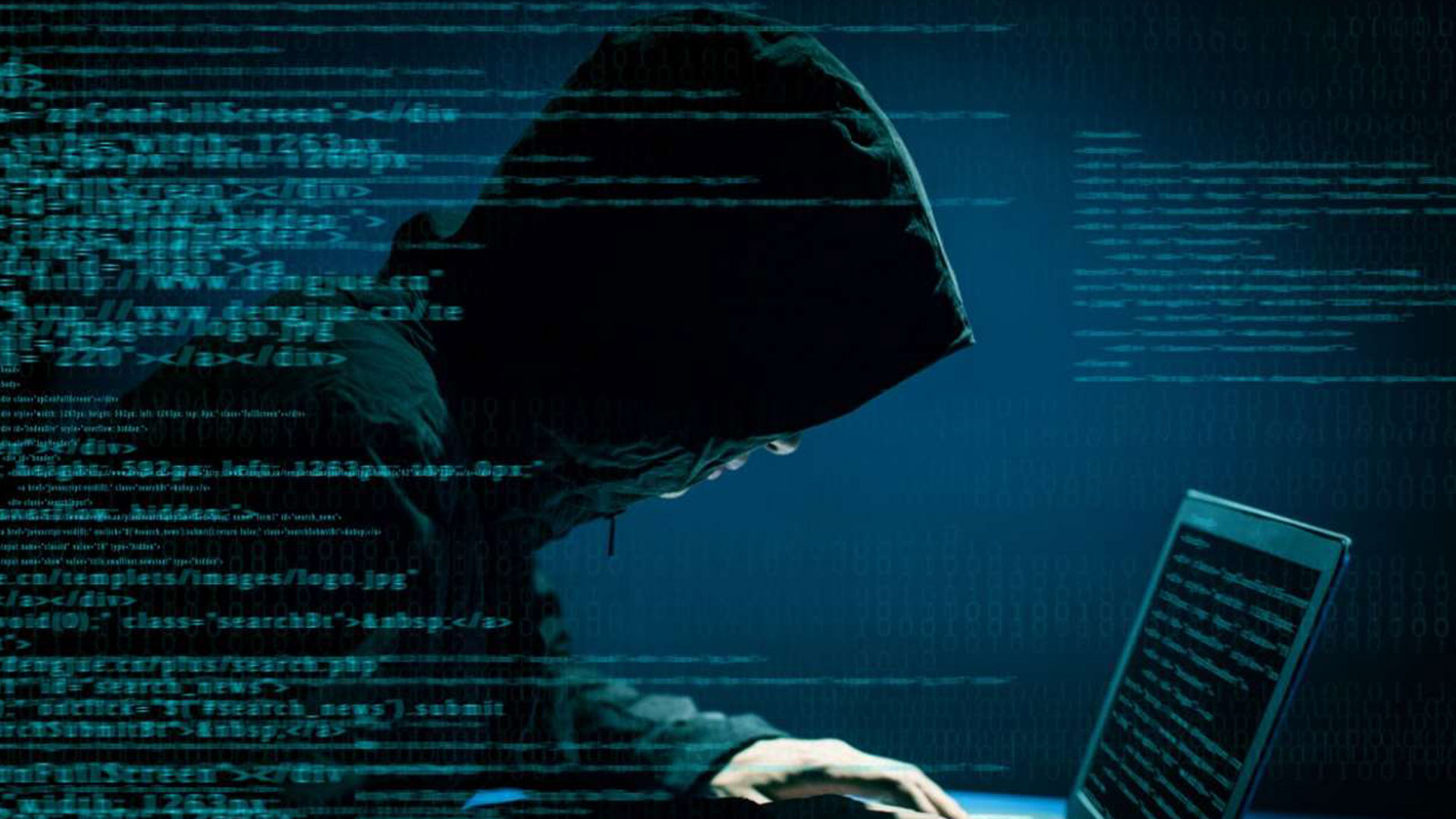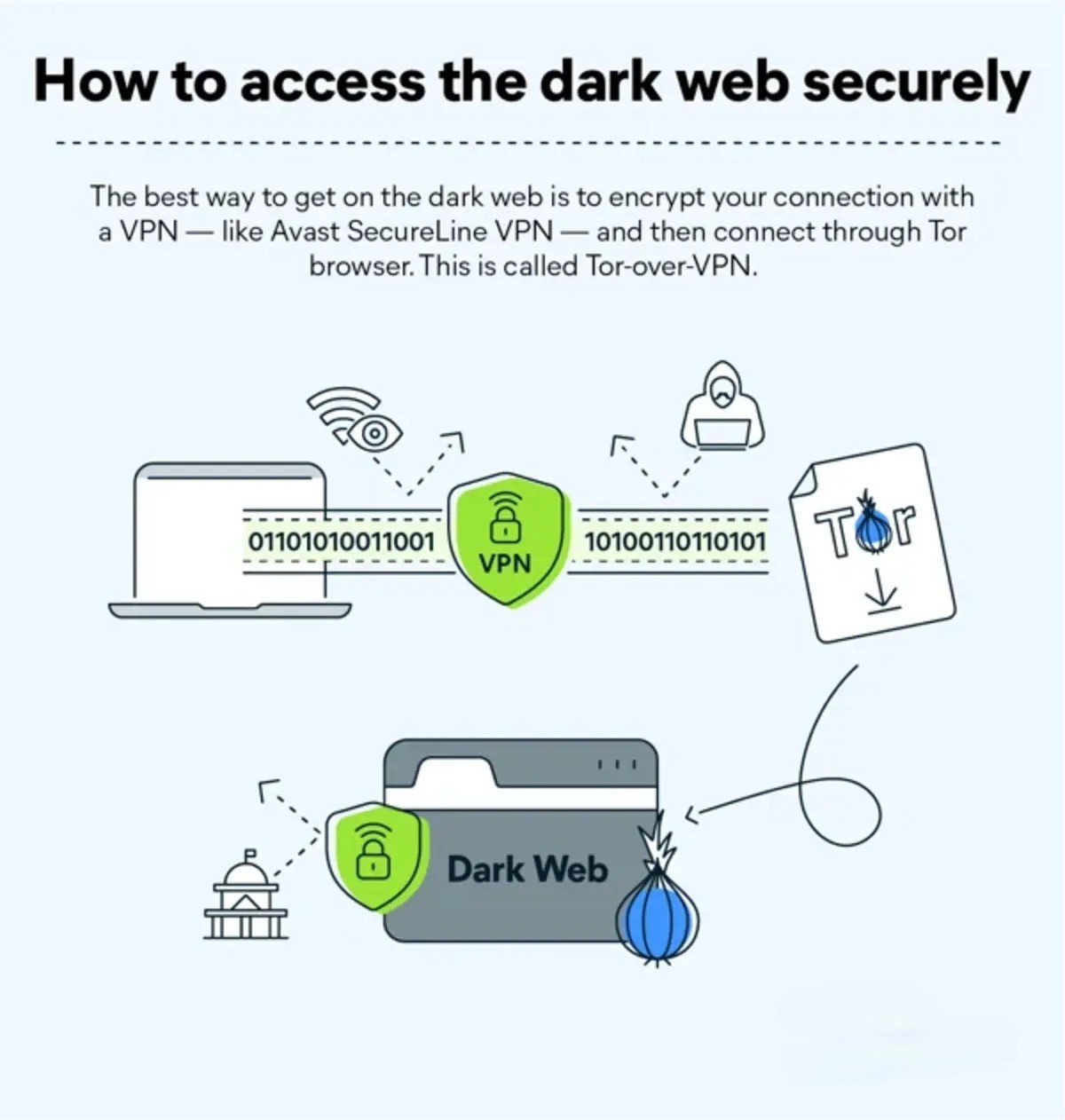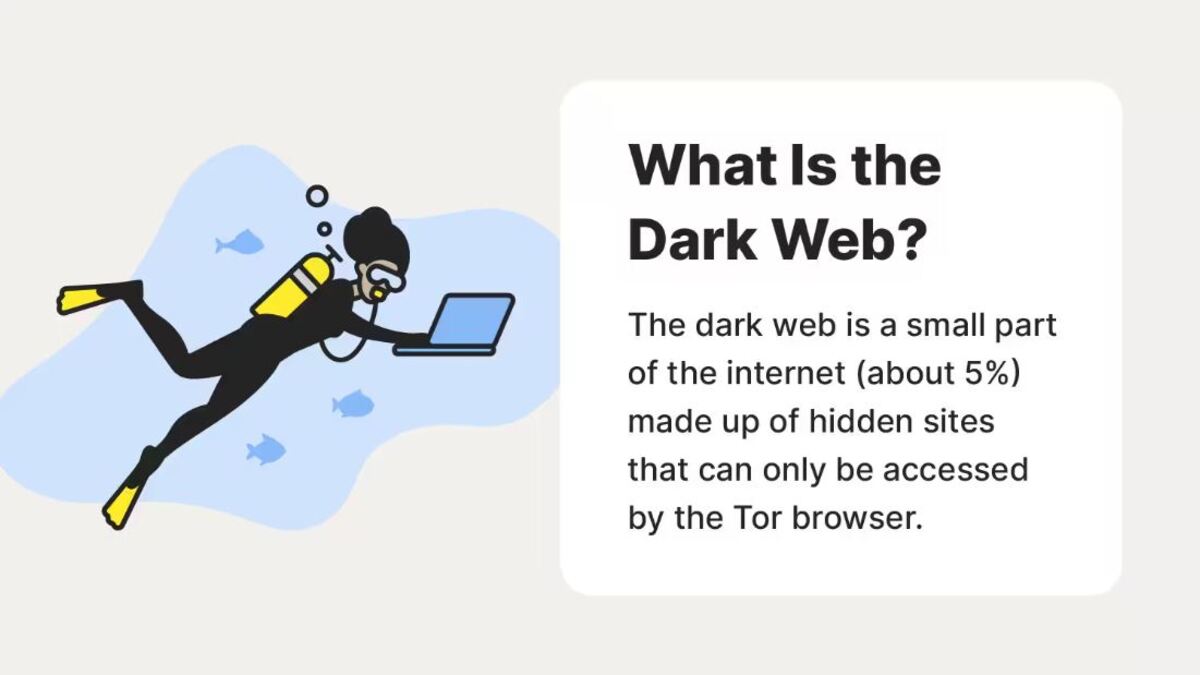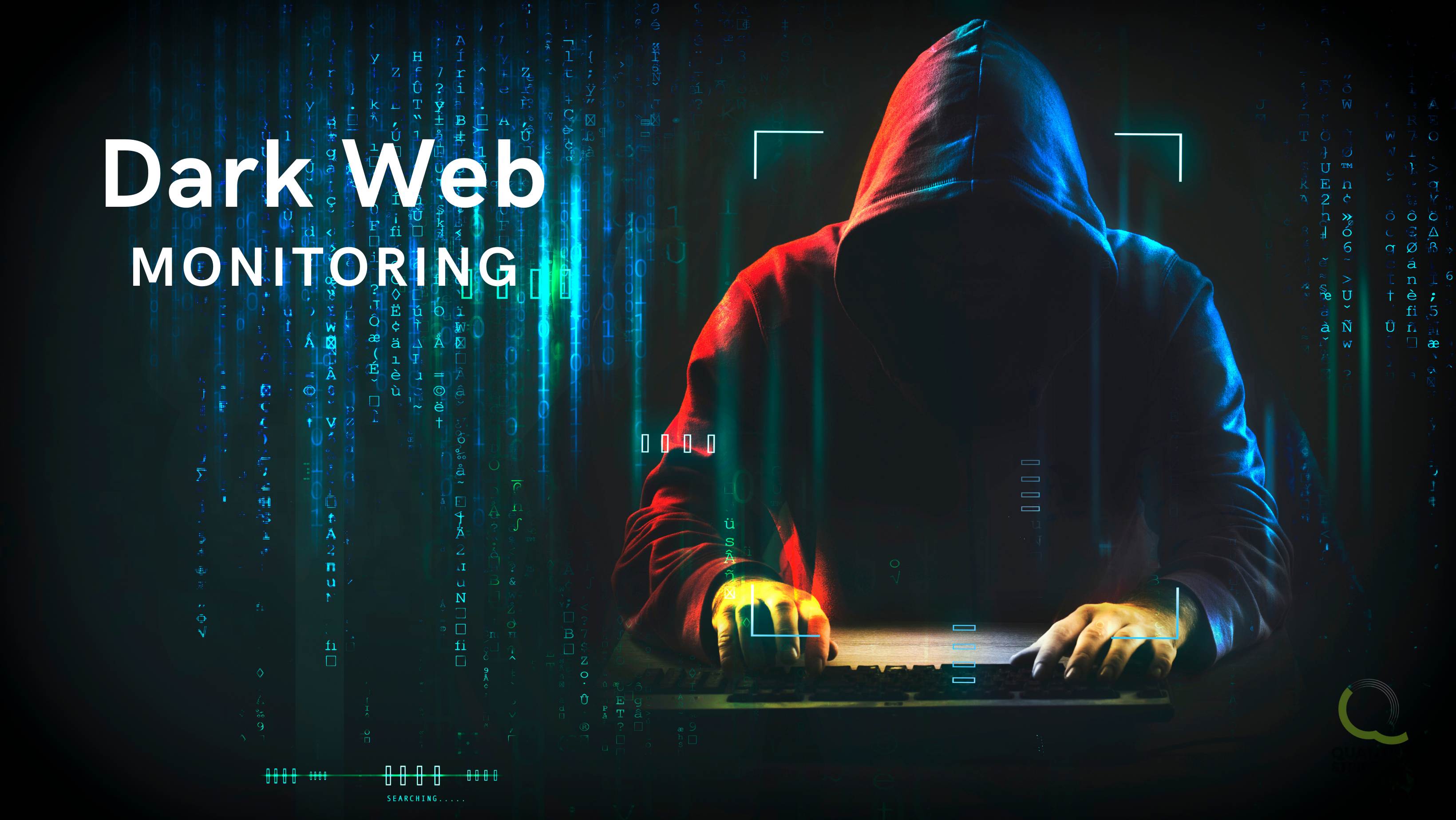Introduction
The Dark Web is a mysterious and intriguing part of the internet that has gained notoriety in recent years. It is a hidden realm where users can explore a different side of the online world, often shielded from the prying eyes of law enforcement and government agencies. In this article, we will delve into the depths of the Dark Web, providing you with a comprehensive guide on what it is, how to access it, and what you can expect to find.
Before we dive into the world of the Dark Web, it’s important to clarify what exactly it is. The Dark Web is a part of the internet that cannot be accessed through conventional search engines like Google or Bing. Unlike the surface web, which is the portion of the internet that is indexed and readily available to the public, the Dark Web consists of hidden websites that are intentionally kept anonymous. These websites use specialized networks, such as Tor, to protect the identities of both the website owners and the visitors.
One of the key aspects that distinguishes the Dark Web from the surface web is its layered structure. The surface web is just the tip of the iceberg, with the Dark Web lying beneath it. Beyond the Dark Web, there is an even deeper layer known as the Deep Web, which comprises all the unindexed content on the internet. While the Deep Web and the Dark Web are often used interchangeably, it is important to note that the Dark Web specifically refers to the portion of the Deep Web that is intentionally hidden and requires specific tools to access.
Accessing the Dark Web can be a complex and potentially risky endeavor. Users must use specialized software, such as Tor or I2P, to navigate the encrypted networks that provide access to Dark Web websites. These networks ensure that the traffic is encrypted and anonymous, making it difficult for anyone to trace the identity or location of the user. However, despite these measures, it is essential to be vigilant and take additional precautions to protect your privacy and security while exploring the Dark Web.
Definition of the Dark Web
The Dark Web is a hidden and encrypted part of the internet that is not accessible through traditional search engines. It exists within the broader Deep Web, which encompasses all unindexed content on the internet. While the terms Deep Web and Dark Web are often used interchangeably, it’s important to note that the Dark Web specifically refers to the portion of the Deep Web that is intentionally hidden and requires specialized tools to access.
Dark Web websites are designed to ensure anonymity and privacy for both website owners and visitors. They achieve this through the use of encrypted networks, such as Tor (The Onion Router) and I2P (Invisible Internet Project). These networks route internet traffic through multiple layers of encryption, making it extremely difficult to trace the origin or destination of the data.
Dark Web websites typically have .onion or .i2p domains, indicating that they reside on specific networks. These websites are not indexed, meaning they cannot be found through search engines like Google. Instead, users must know the specific URL or rely on directories and forums that list Dark Web websites.
The Dark Web serves as a hub for various activities, ranging from legal to illicit. While it is often associated with illegal activities, such as drug trafficking, hacking services, and the sale of stolen data, it’s important to note that not everything on the Dark Web is illegal or nefarious. There are legitimate uses for the Dark Web, such as anonymous communication, whistleblowing, and accessing websites that are blocked or censored in certain countries.
It is crucial to understand that the Dark Web provides a level of anonymity that can attract criminal elements. Users should exercise caution and take necessary measures to protect their privacy and security when accessing the Dark Web. This includes using virtual private networks (VPNs) for an added layer of encryption, disabling JavaScript to mitigate potential vulnerabilities, and being mindful of the websites visited and the information shared.
The Dark Web is a complex and intriguing part of the internet that offers a cloak of anonymity for its users. It is important to approach it with caution and responsibility, and to have a clear understanding of the legal and ethical implications of engaging with Dark Web activities.
Understanding the Different Layers of the Internet
To grasp the concept of the Dark Web, it’s essential to understand the different layers that make up the internet. The internet is often compared to an iceberg, with only a small portion visible on the surface, known as the surface web. However, beneath the surface lie the Deep Web and the Dark Web, each with its own unique characteristics.
The surface web is the part of the internet that is accessible to anyone using a search engine like Google or Bing. It includes websites, blogs, news articles, and other publicly available content that is indexed and easily searchable. These websites are typically hosted on servers and can be accessed through regular web browsers.
Beneath the surface web lies the Deep Web, which encompasses all the unindexed content. This includes content that requires authentication, such as private emails, online banking, and social media profiles. It also includes databases, academic resources, medical records, and other information that is not intended for public consumption. The Deep Web is estimated to be significantly larger than the surface web, as it contains vast amounts of data that are not readily accessible through search engines.
The Dark Web resides within the Deep Web and is intentionally hidden from conventional search engines. It requires specialized software, such as Tor or I2P, to access. The Dark Web is often associated with illicit activities due to its anonymous nature, but it’s important to note that not all activities on the Dark Web are illegal.
By using encryption and routing internet traffic through multiple relays, the Dark Web provides a high level of anonymity for both website owners and users. This anonymity makes it attractive to individuals who wish to communicate and engage in activities away from prying eyes.
An important distinction must be made between the Deep Web and the Dark Web. The Deep Web refers to all unindexed content, including legitimate and legal websites that require authentication. The Dark Web, on the other hand, specifically refers to the hidden, encrypted, and often anonymous part of the internet that is accessed through specialized networks.
Understanding the different layers of the internet is crucial for navigating and demystifying the Dark Web. It highlights the need for specialized software and precautions when accessing this hidden realm, as well as the importance of responsible and ethical online behavior.
Accessing the Dark Web
Accessing the Dark Web requires specific tools and knowledge due to its hidden and encrypted nature. While it might seem daunting, with the right steps, you can navigate this mysterious realm. The most common way to access the Dark Web is through the Tor network, which stands for The Onion Router.
Tor is a free and open-source software that enables anonymous communication. It works by routing internet traffic through a series of encrypted relays, making it difficult to trace individual connections. To access the Dark Web using Tor, you need to download and install the Tor browser, which is designed to ensure your privacy and anonymity while browsing the Dark Web.
Once you have the Tor browser installed, you can open it and connect to the Tor network. This will route your internet traffic through the Tor network, making it anonymous and allowing you to access Dark Web websites. It’s important to note that the Tor browser provides a modified version of the Firefox browser, optimized for privacy and security.
After establishing a connection to the Tor network, you can start exploring Dark Web websites. However, keep in mind that Dark Web URLs are different from regular website URLs. Instead of .com or .org domains, Dark Web URLs typically end with .onion. These URLs are not accessible through conventional search engines and require directories or forums that list Dark Web websites.
While Tor is the most well-known method for accessing the Dark Web, there are other tools and networks available, such as I2P (Invisible Internet Project). I2P is a decentralized network that focuses on anonymous communication and allows access to Dark Web websites hosted on the I2P network. To access the Dark Web through I2P, users need to install the I2P software and configure their browsers accordingly.
Regardless of the method you choose, it’s important to exercise caution and take necessary precautions while accessing the Dark Web. Keep your Tor or I2P software up to date, avoid clicking on suspicious links, and be mindful of the websites you visit. Additionally, consider using a virtual private network (VPN) to add an extra layer of encryption and protect your privacy even further.
Accessing the Dark Web can be an intriguing experience, but it’s crucial to remember that it’s not without risks. Stay vigilant, educate yourself about online security, and use your best judgment when exploring this hidden corner of the internet.
How to Ensure Anonymity on the Dark Web
When accessing the Dark Web, it’s crucial to prioritize your anonymity and take measures to protect your identity. The anonymous nature of the Dark Web can provide a sense of security, but it’s important to remember that anonymity is not foolproof. Here are some steps you can take to enhance your anonymity while exploring the Dark Web:
1. Use Tor or I2P: To ensure anonymity on the Dark Web, utilize the Tor or I2P networks. These networks encrypt your internet traffic and route it through multiple relays, making it difficult to trace your online activities. Download and install the Tor browser or I2P software, and configure your settings to maximize privacy.
2. Keep Software Up to Date: Regularly update your Tor or I2P software to ensure you have the latest security features and bug fixes. Updates often include important enhancements to protect against vulnerabilities and potential threats.
3. Use a VPN: Consider using a virtual private network (VPN) in addition to Tor or I2P. A VPN encrypts your internet connection and hides your IP address, adding another layer of anonymity. Choose a reputable VPN service that does not log your activity and supports the Tor network.
4. Disable JavaScript: Disabling JavaScript on your Tor browser can mitigate potential security risks. JavaScript can be used to exploit vulnerabilities and reveal your identity, so it’s advisable to disable it while accessing the Dark Web. However, be aware that disabling JavaScript may affect the functionality of certain websites.
5. Use Pseudonyms: When interacting on the Dark Web, avoid using your real name or any personally identifying information. Create a unique pseudonym or username to protect your identity. Remember to use different pseudonyms across different platforms to avoid linking your activities together.
6. Be Mindful of Personal Information: Avoid sharing personal information, such as your address, phone number, or real email address, while on the Dark Web. Assume that all information you provide could potentially be compromised. Minimize any potential risks by being cautious about what you share.
7. Encrypt Communications: When communicating on the Dark Web, use encrypted channels whenever possible. Utilize tools like PGP (Pretty Good Privacy) for secure email communication or encrypted messaging applications to protect sensitive information from prying eyes.
8. Be Selective About Websites: Exercise caution when accessing Dark Web websites. Stick to reputable websites and forums, and avoid clicking on suspicious or unknown links. Remember that malicious websites can compromise your anonymity and expose you to potential threats.
9. Protect Your Device: Ensure the security of your device by keeping your operating system and antivirus software up to date. Use strong, unique passwords and enable two-factor authentication to further protect your accounts and data.
While these measures can enhance your anonymity on the Dark Web, it’s important to note that no method can guarantee 100% anonymity. It’s crucial to stay informed, educate yourself about online security best practices, and always exercise caution when engaging in activities on the Dark Web.
Navigating the Dark Web Safely
Exploring the Dark Web can be an intriguing experience, but it’s essential to prioritize your safety and take precautions to mitigate potential risks. Navigating the Dark Web safely requires diligent awareness and adherence to security practices. Here are some guidelines to help you navigate the Dark Web safely:
1. Practice Caution: Exercise caution at all times when navigating the Dark Web. Be skeptical of offers that seem too good to be true, as they may be scams or attempts to compromise your security. It’s crucial to approach the Dark Web with a skeptical mindset.
2. Avoid Illegal Activities: Engaging in illegal activities on the Dark Web is against the law and can lead to severe consequences. Avoid participating in any activities that are illegal or unethical, such as purchasing illegal drugs, engaging in hacking activities, or participating in cybercriminal acts.
3. Use Trusted Directories and Forums: When searching for Dark Web websites, rely on trusted directories and forums that provide verified links. These platforms often have user reviews and ratings, allowing you to find more reliable and legitimate websites.
4. Research and Verify: Before accessing a Dark Web website, conduct thorough research to gather information about its reputation and credibility. Look for user reviews, feedback, or any other information that can help you assess the trustworthiness of the website. This research will help you avoid potentially harmful or malicious websites.
5. Be Mindful of Social Engineering: The Dark Web is rife with social engineering tactics aimed at tricking users into revealing personal information or engaging in illicit activities. Beware of phishing attempts, deceptive practices, and manipulative tactics designed to exploit your trust. Always be cautious and verify the legitimacy of any requests for personal or financial information.
6. Use Secure Payment Methods: If you decide to make purchases on the Dark Web, ensure that you use secure payment methods such as cryptocurrencies, preferably ones that provide a certain level of anonymity, such as Bitcoin. Avoid sharing sensitive financial information that can be traced back to your real identity.
7. Protect Your Personal Information: Take steps to protect your personal information while on the Dark Web. Avoid sharing unnecessary or identifiable details such as your real name, address, or phone number. Limit the information you provide to what is absolutely necessary.
8. Regularly Update Your Security Software: Keep your device’s security software, including antivirus and anti-malware programs, up to date. This ensures that you have the latest protection against known threats that may be encountered on the Dark Web.
9. Trust Your Instincts: If something feels suspicious or unsafe, trust your instincts and exit the website or conversation immediately. It’s better to err on the side of caution than to risk compromising your security or engaging in illegal activities.
Remember, navigating the Dark Web comes with inherent risks. By staying informed, following security practices, and being cautious, you can minimize those risks and explore the Dark Web with a higher level of safety.
What Can I Find on the Dark Web?
The Dark Web is a vast and diverse space that offers a range of content and services, both legal and illicit. While it is notorious for its association with illegal activities, it’s important to note that not everything on the Dark Web is illegal or unethical. Here are some of the things you may encounter on the Dark Web:
1. Marketplaces: One of the most well-known aspects of the Dark Web is its online marketplaces. These marketplaces provide a platform for buying and selling various items, including drugs, counterfeit goods, hacking tools, firearms, stolen data, and more. It’s important to emphasize that engaging in illegal activities on these marketplaces is against the law and can have serious consequences.
2. Privacy Tools and Services: The Dark Web also offers privacy-focused tools and services that aim to protect users’ anonymity. These may include anonymous email services, encrypted messaging platforms, secure file-sharing services, and virtual private networks (VPNs) tailored for privacy and security.
3. Whistleblowing Platforms: Whistleblowing platforms can be found on the Dark Web, serving as a place for individuals to anonymously share sensitive information, expose corruption, or report misconduct without fear of retribution. These platforms play a vital role in promoting transparency and accountability.
4. Censored Content and Bypassing Restrictions: The Dark Web provides individuals in countries with heavy internet censorship the opportunity to access blocked websites and information. It acts as a platform for circumventing government-imposed restrictions and enables users to communicate freely and access information that would otherwise be unavailable.
5. Research and Academic Resources: On the Dark Web, there are libraries and repositories that host academic papers, research findings, journals, and other educational content. While the legitimacy of these resources may vary, they offer an alternative space for the dissemination of knowledge outside traditional channels.
6. Whipping Up Hacking Skills: The Dark Web can be a hotbed for hackers, offering forums, tutorials, and marketplaces for trading hacking tools and services. While exploring hacking-related content on the Dark Web is typically illegal and unethical, it can also serve as a way to educate oneself and understand potential vulnerabilities to enhance security.
7. Online Forums and Communities: The Dark Web hosts various anonymous forums and communities where individuals with shared interests can communicate and exchange ideas. Some forums focus on a wide range of topics, such as technology, politics, or philosophy, while others may have more specific themes.
8. Cybersecurity and Information Security Discussions: Within the Dark Web, you can find discussions and resources focused on cybersecurity and information security. These forums provide a platform for knowledge sharing, discussing vulnerabilities, and exploring the latest developments in the field.
It’s crucial to approach the Dark Web with caution and adhere to legal and ethical guidelines. Engaging in illicit activities can have severe legal consequences and serve as a breeding ground for cybercrime. Stay mindful of the potential risks and always prioritize your safety and legal compliance.
Purchasing Goods and Services on the Dark Web
One of the prominent aspects of the Dark Web is its underground marketplaces where individuals can buy and sell a wide range of goods and services. While some of these marketplaces offer legitimate products, it’s important to acknowledge that many of the offerings on the Dark Web are illegal or unethical. Here are some key points to consider when it comes to purchasing goods and services on the Dark Web:
1. Illegal Goods: One of the most prevalent types of items available on the Dark Web is illegal drugs. These marketplaces provide an anonymous platform for drug sellers to connect with potential buyers. It’s crucial to stress that buying and selling drugs is illegal in most jurisdictions and can have severe legal consequences.
2. Counterfeit Items: The Dark Web is also known for offering a range of counterfeit goods, including fake designer products, counterfeit currencies, forged documents, and more. Engaging in the purchasing or selling of counterfeit goods is illegal and supports illicit activities.
3. Hacking Tools and Services: The Dark Web provides a marketplace for buying and selling hacking tools, exploit kits, and hacking services. Engaging in these activities is illegal and can lead to significant legal ramifications. It’s essential to prioritize ethical behavior and respect the boundaries of the law.
4. Stolen Data: Marketplaces on the Dark Web offer stolen data, such as credit card information, personal identifying information (PII), and login credentials. Purchasing or using stolen data is illegal and unethical, as it contributes to identity theft and fraud.
5. Firearms and Weapons: Some illicit marketplaces on the Dark Web provide access to firearms, weapons, and other dangerous items. Engaging in the purchase or sale of firearms is highly illegal and goes against regulations designed to ensure public safety.
6. Money Laundering Services: Some individuals on the Dark Web offer money laundering services, which facilitate the conversion of illicit funds into usable forms. Engaging in money laundering is illegal and can lead to severe legal consequences.
It is essential to underline that participating in any illegal activities on the Dark Web is against the law and puts individuals at risk of criminal charges. Both buyers and sellers of illegal goods and services can face serious legal consequences if discovered by law enforcement agencies.
Nonetheless, it’s important to mention that not everything on the Dark Web is illegal. The Dark Web also provides a platform for individuals to access information, communicate anonymously, and bypass censorship in certain countries. However, it is crucial to exercise caution, be aware of legal boundaries, and prioritize personal safety and legal compliance when navigating the Dark Web.
Dark Web Financial Activities
The Dark Web has become synonymous with various financial activities, both legal and illegal, that take place within its hidden corners. While the Dark Web is notorious for its association with illicit financial transactions, it’s important to note that not all financial activities on the Dark Web are illegal or unethical. Here are some key points to understand about financial activities on the Dark Web:
1. Cryptocurrency Transactions: Cryptocurrencies, such as Bitcoin and Monero, are the preferred medium of exchange on the Dark Web. These digital currencies offer a certain level of anonymity, making them attractive for conducting financial transactions. Cryptocurrencies provide a means for buying and selling goods and services, as well as facilitating money laundering and illicit transactions.
2. Money Laundering: Money laundering is a prevalent financial activity on the Dark Web. Criminals can use cryptocurrencies and other methods to conceal the origins of funds obtained through illegal activities. Money laundering is illegal and can lead to severe legal consequences if caught.
3. Illegal Financial Services: The Dark Web hosts a variety of illegal financial services, such as fraud guides, credit card information, banking details, and identity theft services. These illegal activities enable individuals to engage in financial crimes, such as credit card fraud and identity theft, leading to significant financial losses for victims and potential legal repercussions for those involved.
4. Auctions and Marketplaces: Dark Web auctions and marketplaces offer a range of goods and services, from drugs and weapons to hacking tools and stolen data. These marketplaces often rely on cryptocurrencies for transactions and anonymity. Engaging in illegal transactions on these platforms is against the law and can result in legal consequences.
5. Ponzi Schemes and Scams: The Dark Web is not immune to Ponzi schemes and scams. Individuals may encounter fraudulent investment opportunities, fake financial services promising high returns, or other scams designed to defraud unsuspecting users. It’s crucial to be cautious and skeptical to avoid falling victim to financial scams.
6. Anonymous Donations and Fundraising: The Dark Web also facilitates anonymous donations and fundraising for various causes or supporting political activists in oppressive regimes. While this aspect of financial activity is not inherently illegal, it’s crucial to verify the legitimacy of the organizations or groups receiving donations to ensure they align with ethical and legal guidelines.
It is important to recognize that engaging in illegal financial activities on the Dark Web is against the law and exposes individuals to significant legal risks. Governments and law enforcement agencies actively work to track down and prosecute those involved in illegal financial transactions on the Dark Web.
While the Dark Web offers a clandestine space for financial activities, it’s crucial to approach it with caution, prioritize legal compliance, and be aware of the potential risks and consequences associated with engaging in illicit financial activities.
Dark Web Forums and Communities
Dark Web forums and communities play a significant role in shaping the culture and dynamics of the hidden online world. These forums and communities provide platforms for individuals to exchange information, share ideas, and connect with like-minded individuals. While the Dark Web is often associated with illegal activities, it’s important to note that not all forums and communities on the Dark Web are involved in illicit behavior. Here are some key points to understand about Dark Web forums and communities:
1. Anonymity and Secrecy: Dark Web forums and communities offer users a level of anonymity that is not typically found on the surface web. Participants can engage in discussions without revealing their real identities, allowing for open and frank conversations. This anonymity can encourage both positive and negative interaction, as individuals can freely express their opinions without fear of repercussions.
2. Wide Range of Topics: Dark Web forums cover a wide range of topics, including technology, hacking, politics, philosophy, cryptography, and more. These communities attract individuals with diverse interests and expertise, creating a space for engaging and informative discussions.
3. Knowledge Sharing: Dark Web forums and communities foster knowledge sharing among participants. Users can exchange information, offer guidance and tutorials, share research findings, and collaborate on various projects. This collaborative and open nature often leads to the advancement of knowledge in specific domains.
4. Support Networks: Dark Web communities can provide support networks for individuals facing challenges such as oppressive regimes, censorship, or persecution. These communities can offer emotional support, help disseminate information, and provide resources to individuals seeking refuge or fighting for their rights.
5. Illicit Activities: It’s important to acknowledge that some Dark Web forums and communities are involved in illegal activities. These platforms can facilitate discussions related to hacking, fraud, drug trafficking, and other illicit practices. Engaging in or supporting illegal activities on these forums goes against the law and can have serious consequences.
6. Ethical Discussions: Dark Web forums are not solely focused on illegal activities. Ethical discussions and debates are also prevalent, with participants exploring topics such as digital rights, privacy concerns, governmental transparency, and other socially relevant issues.
7. Scams and Deceptive Practices: As with any online platform, Dark Web forums can be susceptible to scams and deceptive practices. Users should exercise caution and be aware that not all information or services offered on these forums are trustworthy.
8. Responsible Participation: When engaging in Dark Web forums and communities, it is crucial to approach discussions responsibly. Respect others’ opinions, avoid engaging in illegal activities, and adhere to the guidelines set out by the community. Encourage constructive dialogue and use the forums as a platform for personal growth and learning.
While Dark Web forums and communities can provide avenues for sharing knowledge and connecting with like-minded individuals, it’s important to exercise caution, maintain ethical practices, and be aware of the legal implications associated with engaging in illegal activities within these spaces.
Protection Against Dark Web Threats
Exploring the Dark Web comes with inherent risks, as it is known for its association with illegal activities, cybercrime, and potential threats. However, with the right precautions, you can mitigate these risks and protect yourself from Dark Web threats. Here are some key measures to consider:
1. Secure and Updated Software: Ensure that your operating system, web browser, antivirus software, and other security applications are up to date. Regular updates help protect your device against known vulnerabilities and ensure maximum security.
2. Use a Virtual Private Network (VPN): Employing a VPN can enhance your privacy and security when accessing the Dark Web. A VPN encrypts your internet traffic and masks your IP address, helping to anonymize your online activities and protect your identity.
3. Tor Browser Configurations: If using the Tor browser to access the Dark Web, it is important to configure and customize the settings. Disable JavaScript, as it can have vulnerabilities, and be cautious when allowing browser plugins or extensions to ensure they are trustworthy and secure.
4. Practice Safe Browsing Habits: When navigating the Dark Web, exercise caution and avoid clicking on suspicious links or downloading files from unknown sources. Be aware of phishing attempts and scams designed to trick users into revealing personal information or downloading malware.
5. Strong and Unique Passwords: Use strong, unique passwords for all your online accounts, including those related to Dark Web activities. Employ password managers to securely generate and store passwords, minimizing the risk of unauthorized access to your accounts.
6. Limit Personal Information: Minimize the amount of personal information you share, both on the Dark Web and across the internet in general. Avoid using your real name, address, or any personally identifiable information when engaging in activities on the Dark Web to reduce your digital footprint.
7. Educate Yourself About Scams and Threats: Stay informed about the latest scams, phishing techniques, and threats prevalent on the Dark Web. Stay up to date with cybersecurity news, subscribe to reliable sources, and educate yourself about common red flags and warning signs to avoid falling victim to malicious activities.
8. Avoid Illegal Activities: Engaging in illegal activities on the Dark Web not only puts you at legal risk but also exposes you to potential scams and threats. Adhere to legal boundaries, and remember that participating in illegal activities can have severe consequences.
9. Regularly Monitor and Secure Your Online Presence: Keep a close eye on your online presence and monitor for any signs of compromised information. Set up alerts for your accounts and credit cards to receive notifications of any suspicious activity.
10. Stay Vigilant: Be aware of your surroundings and trust your instincts. If something feels off or suspicious, exit the website or forum immediately. Staying vigilant and maintaining a cautious mindset is crucial for protecting yourself from Dark Web threats.
It’s important to acknowledge that no security measures can guarantee complete protection on the Dark Web. However, by implementing these precautions and maintaining awareness of potential risks, you can reduce the likelihood of falling victim to threats and ensure a safer online experience.
Legal and Ethical Considerations
When it comes to the Dark Web, there are significant legal and ethical considerations to reflect upon. The clandestine nature of the Dark Web, coupled with its association with illegal activities, poses challenges and raises important questions. Here are some key points to consider:
1. Illegality of Certain Activities: It is crucial to understand that engaging in illegal activities on the Dark Web is against the law. Purchasing or selling drugs, participating in hacking or fraud, distributing illegal content, and other illicit activities carry severe legal consequences. It is essential to abide by the legal framework of your jurisdiction and to respect ethical boundaries when engaging in online activities on the Dark Web.
2. Responsibility and Accountability: Users must take personal responsibility for their actions on the Dark Web. It is important to consider the potential consequences of engaging in illegal or harmful activities. Recognize that contributing to criminal endeavors not only risks your own well-being but also compromises the integrity and safety of others.
3. Ethical Use of Anonymity: While anonymity is a defining characteristic of the Dark Web, it is crucial to use this newfound privacy responsibly and ethically. Anonymity can protect individuals’ safety, provide a platform for whistleblowing, and enable free speech. However, it can also be exploited to engage in harmful or illegal activities. It is essential to be mindful of the ethical implications of anonymous actions and to use anonymity responsibly.
4. Indirect Support of Criminal Enterprises: By participating on the Dark Web, even if for legal and ethical purposes, individuals indirectly support the infrastructure and activities of the Dark Web as a whole. It is critical to be aware of and acknowledge this indirect support, and to consider the broader implications of one’s presence and actions on the platform.
5. Balancing Privacy and Security: The Dark Web raises questions about the balance between privacy rights and security concerns. While individuals have the right to privacy, privacy can also be leveraged for illegal activities or concealment of criminal behavior. Striking a balance to protect privacy without compromising law enforcement’s ability to prevent and investigate crime poses ongoing challenges.
6. Collaborative Efforts Against Crime: Law enforcement agencies continue to invest resources and develop strategies to combat criminal activities on the Dark Web. Collaborative efforts between law enforcement, government agencies, and technology companies aim to identify and prosecute those engaged in illegal activities. This collaboration highlights the shared responsibility to uphold legal and ethical standards both on the Dark Web and in the wider digital realm.
7. Personal Safety and Cybersecurity: It is crucial to prioritize personal safety and cybersecurity while engaging in Dark Web activities. Implement security measures, use encrypted channels, and exercise caution to protect yourself from potential threats. Ensure that you are well-informed about online security best practices and stay vigilant to safeguard both your personal well-being and privacy.
Engaging with the Dark Web requires a thoughtful consideration of legal and ethical implications. Respecting legal boundaries, promoting ethical behavior, and prioritizing personal safety should be fundamental principles guiding your actions in this hidden online realm.
Conclusion
The Dark Web is a complex and intriguing part of the internet that offers a hidden and encrypted space for various activities, ranging from legal to illicit. It is essential to approach the Dark Web with caution, respecting legal boundaries and considering the ethical implications of your actions. While the Dark Web is often associated with illegal activities, it’s important to note that not everything on the Dark Web is illegal or unethical.
Understanding the layers of the internet, accessing the Dark Web securely, and protecting your anonymity are critical aspects of exploring this hidden realm. By following recommended security measures such as using the Tor browser or a VPN, disabling JavaScript, and being cautious of the websites you visit, you can navigate the Dark Web more safely.
It is crucial to be aware of the potential risks and threats associated with engaging in illegal activities, scams, or fraudulent behavior on the Dark Web. Adhering to legal boundaries, respecting the rights and privacy of others, and using anonymity responsibly are essential for conducting yourself ethically on the Dark Web.
Remember, engaging in illegal activities on the Dark Web not only exposes you to legal consequences but also contributes to a harmful ecosystem. By prioritizing legal compliance, personal safety, and ethical behavior, you can ensure a safer and more responsible exploration of the Dark Web.
Ultimately, the Dark Web remains a delicate and evolving landscape that presents challenges and opportunities. By maintaining a vigilant mindset, staying informed about potential risks, and using the Dark Web responsibly, you can navigate this hidden realm with greater confidence and make informed decisions about your online activities.







